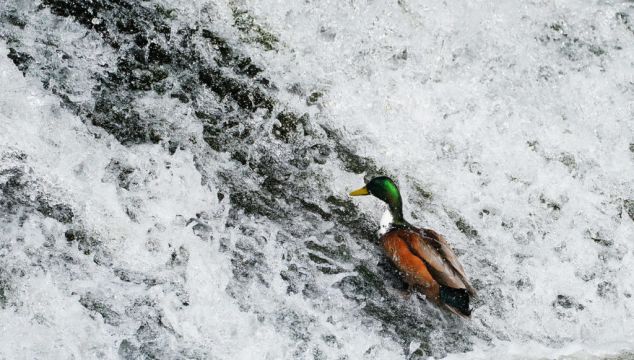Ireland has been referred to an EU court over its failure to adopt laws on protecting water quality.
Despite new water quality powers being signed into law two days before the EU deadline, the European Commission is understood to be continuing with the legal action for not fully transposing its directive into national legislation.
The directive in question, issued in 2000, requires that all inland and coastal waters reach a minimum of “good” status by 2027.
It obliges EU countries to protect all bodies of ground water and surface water – which includes rivers, lakes, transitional and coastal water.
EU countries are asked to do this by drawing up river basin management plans and programmes that aim to reduce water pollution to levels that are no longer harmful to human health and ecosystems.
Although Ireland has bolstered its water quality laws with new legislation, the Commission has concluded that the changes made are “insufficient”.
The Commission has written to Ireland on several occasions since October 2007 urging it to fully transpose the directive.
It said that despite some progress, “the Irish authorities have not yet fully addressed the grievances, over 20 years after the entry into force of this directive”.
“The Commission considers that efforts by the Irish authorities have to date been unsatisfactory and insufficient and is therefore referring Ireland to the Court of Justice of the European Union,” it said on Thursday.
Two days before the deadline on transposing the EU laws, the government’s Water Environment Bill was signed into law, after passing through the houses of the Oireachtas.
The legislation creates new powers to control water abstraction and impoundment activities – among the concerns the Commission had raised previously.
The Department of Housing, which sponsored the Bill, has been contacted for comment.
On Thursday, the European Commission also referred Ireland, as well as several other EU countries, to court for failing to implement provisions to manage invasive alien species – plants and animals accidentally or deliberately introduced to an area where they are not normally found.
The 2015 regulation focuses on 88 species of concern, and is seen as important to implement in order to limit their ability to affect indigenous species, alter ecosystems, impact on agriculture and cause skin problems in humans.
There are at least 12,000 alien species in the European environment, of which around 10–15 per cent are invasive.







